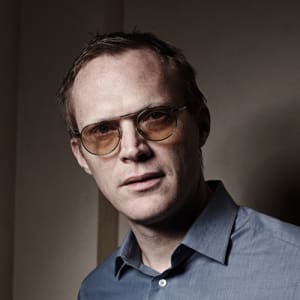
Clarence Heatley
Notorious gangster Clarence Heatley, with his “Preacher” crew, extorted, kidnapped and even killed to gain notoriety on the streets of the Bronx and Harlem.
Synopsis
Clarence Heatley and his "Preacher Crew" sold drugs, extorted, kidnapped and even killed to gain notoriety on the streets of the Bronx and Harlem boroughs of New York City. Heatley's top lieutenant was a former housing cop named John Cuff. By the early 1990s, the New York Police Department and FBI formed a task force to take down the Preacher Crew. Both Heatley and Cuff admitted their crimes in plea deals to avoid the death penalty. Heatley is currently serving his time at Florida's United States Penitentiary, Coleman.
Crimes with the 'Preacher Crew'
Clarence Heatley, also known by such monikers as "The Preacher" and "The Black Hand of Death," and his "Preacher Crew" sold cocaine, crack-cocaine, heroin, PCP and other drugs; extorted; kidnapped; and even killed to gain notoriety on the streets of the Bronx and Harlem boroughs of New York City.
Heatley's top lieutenant was a former housing cop named John Cuff. His team included "janitors," whose job was to clean up the mess after the Preacher Crew's victims were tortured and murdered. According to authorities, the drug ring operated from apartment buildings in the Bronx. It was rumored—and reported by several media outlet—that the Preacher Crew once kidnapped singer Bobby Brown—ex-husband of famed pop singer, the late Whitney Houston—and held him for ransom over a drug debt.
Arrest, Conviction and Sentencing
By the early 1990s, the New York Police Department and FBI formed a task force to take down the Preacher Crew, who, by this time, had reportedly been involved in nearly 45 homicides. Not long after, both Heatley and Cuff entered into plea deals in order to avoid the death penalty.
Under the terms of his plea bargain, made in February 1999, a 47-year-old Heatley pleaded guilty to racketeering and murder conspiracy in connection with 13 drug-related homicides, and was sentenced to life in prison. According to The New York Times, in explanation of Heatley's plea bargain, Joel S. Cohen, one of Heatley's attorneys, stated, ''There didn't seem to be any upside to going to trial, if we could be certain that he would avoid execution by pleading guilty.'' Cohen added that Heatley wanted to spare his family ''from having to experience his execution, and he also wanted to try to be a positive presence in the lives of his children.''
According to authorities, Heatley acknowledged during his plea-bargaining that he had made a substantial income from his drug dealing, which primarily involved the sale of cocaine and crack-cocaine from 1990 to '96. Heatley is currently serving his sentence at the United States Penitentiary, Coleman, in Florida, a high-security federal prison.




